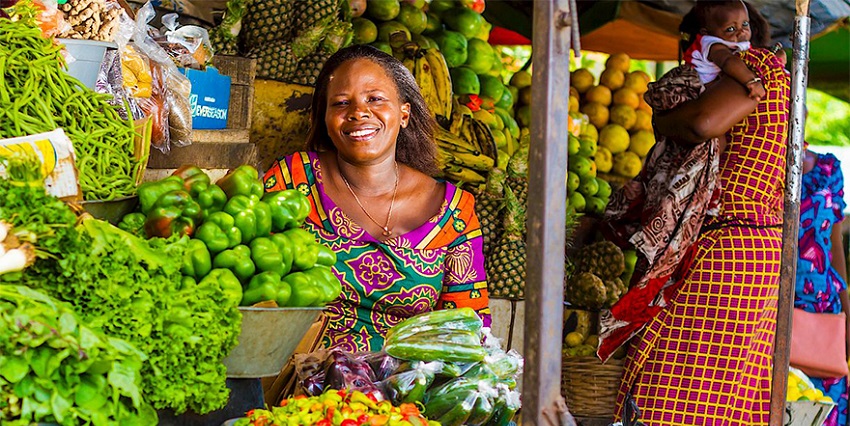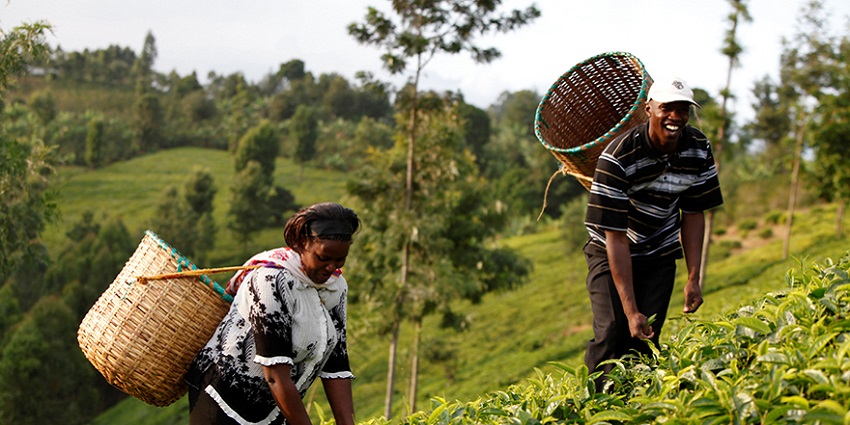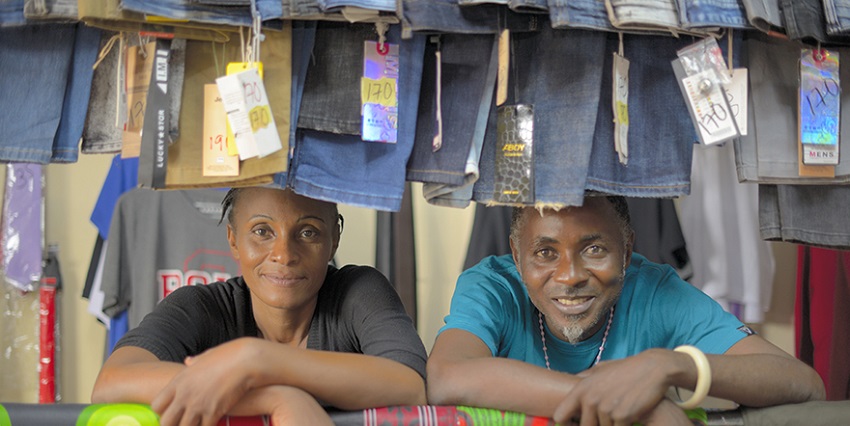11,5M€
Wallet
156 573
Number of beneficiaries
58,6 %
Women beneficiaries
92 %
Rural beneficiaries
Zambia
Financial services
Funding granted
Loan of €720,000*
(local currency equivalent)
Partner of the Foundation
since 2016
*Outstanding at grant value
Context :
With a GDP of USD 25 billion in 2018, Zambia is the 4th largest economy in Southern Africa, behind South Africa, Angola, and Zimbabwe. Agriculture accounts for approximately 201,000 tons of the gross domestic product (GDP) and occupies a central place in the economy. It employs more than 501,000 tons of the workforce.
The company:
Agora Microfinance Zambia (AMZ) is a Tier 3 microfinance institution established in 2011 by Agora Microfinance NV (AMNV) and Concern Worldwide. Its mission is to contribute to the economic well-being of the poor through the effective provision of appropriate financial services.
Impact :
AMZ aims to serve customers who were previously excluded from the formal financial market, primarily due to poverty or where they live. The products offered are designed to meet their financial needs.
The Foundation grants seven new grants in sub-Saharan Africa

During the first half of the year, the Grameen Crédit Agricole Foundation granted seven new financing projects in sub-Saharan Africa to long-standing partners.
In Benin, the microfinance institution RENACA received a loan in local currency equivalent to €762,000. RENACA is a mutual institution whose mission is to significantly strengthen the economic base of rural populations. To date, the institution has 27,000 clients located in 801 rural areas, including 59.51 women.
In Kenya, the Foundation granted a new local currency loan equivalent to €2 million to the Musoni microfinance institution. The institution makes extensive use of information and communication technologies to manage its activities efficiently and adapt quickly. To date, the institution has 44,000 clients, including 66,313 women and 63,313 rural clients.
In Uganda, ENCOT received a new local currency loan equivalent to €296,000. This loan was granted under the African Facility, a program developed by the Grameen Crédit Agricole Foundation in partnership with the French Development Agency to support small microfinance institutions in sub-Saharan Africa. ENCOT is an institution that offers financial and business development services. To date, the institution has 6,200 clients, including 561,000 women and 88,410,000 clients in rural areas.
In the Democratic Republic of Congo, the Foundation granted a €540,000 loan under the African Facility to the microfinance institution Paidek, whose role is to finance the development of small-scale commercial and livestock activities. To date, Paidek has 15,500 clients, including 511,000 women and 31,210,000 clients in rural areas.
In Zambia, the Foundation also granted a new local currency loan equivalent to €300,000 to the microfinance institution Agora Microfinance Zambia (AMZ), also within the framework of the African Facility. AMZ is a microfinance institution that specifically targets low-income individuals with appropriate financial products. It currently has 37,100 clients, including 581,300 women and 851,300 clients in rural areas.
Finally, in Senegal, the Foundation granted a loan to CAURIE Microfinance in local currency equivalent to €1.14 million. CAURIE's mission is to contribute sustainably to the economic and social advancement of microentrepreneurs. The institution currently has 72,200 clients, including 99% women and 55% in rural areas. A second investment was made in Senegal in the form of a stake in Laiterie du Berger for an amount equivalent to €99,700. Laiterie du Berger, in which the Foundation has been a shareholder since 2010, is a social enterprise that recycles milk collected from Fulani herders in the north of the country, transforming it into yogurts and other dairy products sold under the Dolima brand.
With these new investments, the Foundation brings the amount of its commitments in sub-Saharan Africa to nearly 41 million euros, or 41% of the total amount of the Foundation's commitments at the end of August 2019.
In 2018 the Foundation invested €3.7 million in East Africa

It has thus financed two partners in Kenya: BIMAS, with a loan of 500,000 euros, and VERT Ltd. with a loan of 440,000 euros. BIMAS is a microenterprise development program (MED-P) established in 1992 under the auspices of PLAN Embu. Its objective is to contribute to sustained economic growth and employment in the rural sector, which will result in improved social well-being and increased income for the rural population in Kenya. To date, BIMAS has more than 18,500 clients, including 66.5% women. VERT Ltd., for its part, is a company specializing in the export of fresh fruits and vegetables. The company, created in 2000, has adapted its business model over the years to better meet the specificities of the European market and adapt to current legislation. It has also implemented a more sustainable model by working directly with small local farmers organized into small groups. The Foundation has been a shareholder in VERT Ltd since 2016.
The Foundation also provided its first funding to the MicroLoan Foundation in Malawi, with a €256,000 loan. The MicroLoan Foundation is a UK-based microfinance charity that provides business training, loans, and ongoing support to women living in Malawi, Zambia, and Zimbabwe. The organization's primary goals are poverty reduction and women's empowerment. In Malawi, the institution now has nearly 30,000 clients, all women. In Uganda, the Foundation provided a new €700,000 loan to the microfinance institution UMF. UMF (Uganda Microcredit Foundation) is a microfinance institution that provides loans and other microfinance services to economically active people in Uganda. The institution specializes in commercial and personal, financial, and non-financial products for businesses and individuals to facilitate their development. The institution has more than 4,000 clients, including 54% women and 70% in rural areas.
In Zambia, the Foundation also funded two partners: AMZ with a €600,000 loan over a four-year period and FINCA Zambia with a €1.2 million loan over a three-year period. Agora Microfinance Zambia (AMZ) is a microfinance institution that specifically targets low-income individuals with appropriate financial products. AMZ aims to serve clients who were previously excluded from the formal financial market, primarily due to their poverty or place of residence. It has over 25,000 clients in 391 rural areas. 611 of these clients are women. FINCA Zambia, for its part, is a multi-service microfinance institution that currently serves over 9,000 clients with financial services, including loans, savings, payments, and money transfers. FINCA Zambia's clientele includes 571 women.
[Interview] “Technical assistance helps structure our agricultural microcredits”

Interview with Susan Chibanga, Managing Director of AMZ, a Zambian microfinance institution that provides microcredit, insurance, and money transfer services to more than 50,000 clients, primarily women (60%) and in rural areas (80%).
In Zambia, the microfinance institution AMZ provides microcredit, insurance, and money transfer services to over 50,000 clients, primarily women (60%) and in rural areas (80%). Thanks to technical assistance provided under the African Facility program, AMZ was able to implement an agricultural loan assessment system for smallholder farmers, an innovation in Zambia and the wider region.
What are the activities and objectives of AMZ Zambia?
Susan Chibanga: Since the institution's creation eight years ago, we have been providing opportunities and contributing to the economic well-being of the poorest people. We provide them with access to appropriate financial services: village group loans, agricultural loans, microinsurance, and even mobile payments. Agricultural loans and rural financing are costly activities that require close monitoring.
To make them viable, we rely on the expertise of our partners such as the Grameen Crédit Agricole Foundation, which is both one of our financiers and a technical assistance coordinator for several of our projects (*).
How does technical assistance improve your microloans?
AMZ has just taken a step forward in structuring its microcredit business. Thanks to technical assistance from the Foundation and other partners, we have implemented a tool to help manage our products, the Agricultural Loan Evaluation System, a true innovation in the region. This resource was initially developed by the Frankfurt School of Business. It allows us to determine credit limits by simulating repayment models based on the type of crops grown by small or medium-sized farmers. We conducted a pilot project on corn, soybeans, tomatoes, watermelon, and peanuts during one growing season. We now want to roll it out more widely.
With what priorities?
We are considering developing a mobile application for the tool. It would be useful to combine it with our customers' credit ratings and more secure authentication systems, such as pen signatures and even facial recognition. Experience shows that the tool reduces risk exposure for both our institution and our beneficiary clients. Technical assistance will help us continue to make our lending more efficient.
What are AMZ's growth prospects?
Already established in the central region of Zambia, we aim to expand our operations throughout the country. We also hope to become a deposit-taking institution within two years, in addition to our lending activities. Our positioning in the regions will remain crucial, with a long-term portfolio of 10 to 15,000 smallholders.
____________________________________________________

